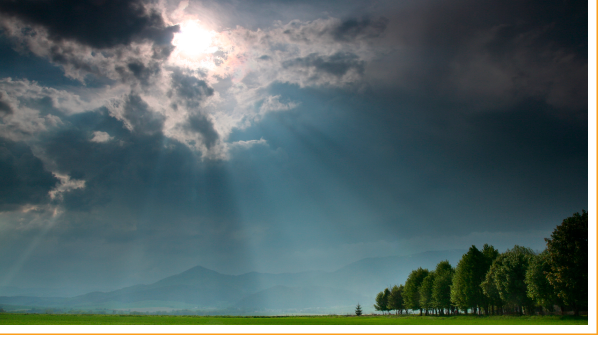Rabbi Joan Glazer Farber | Derekh: A Pathway into Adult Jewish Learning, New Yok, USA
 God instructs Moses to speak to Aaron who is in isolation and mourning for his sons. Aaron performs the rites of atonement though his grief. The Israelites are warned not to follow the ways of the Egyptians or the Canaanites, how and when to bring offerings, as well as with whom it is appropriate to have sexual relations. Then God instructs Moses, saying:
God instructs Moses to speak to Aaron who is in isolation and mourning for his sons. Aaron performs the rites of atonement though his grief. The Israelites are warned not to follow the ways of the Egyptians or the Canaanites, how and when to bring offerings, as well as with whom it is appropriate to have sexual relations. Then God instructs Moses, saying:
דַּבֵּ֞ר אֶל־כָּל־עֲדַ֧ת בְּנֵי־יִשְׂרָאֵ֛ל וְאָמַרְתָּ֥ אֲלֵהֶ֖ם קְדֹשִׁ֣ים תִּהְי֑וּ כִּ֣י קָד֔וֹשׁ אֲנִ֖י יְהוָ֥ה אֱלֹהֵיכֶֽם׃
Speak to the entire community of Israel and say to them You shall be holy for I, Adonai your God is holy. (Leviticus 19:2)
The command to be holy is followed by laws for ethical behavior and family purity (the laws against incest for example).
Having just summarized the combined parshiyot, it appears that much of the teachings of Achrei Mot surround issues which modern liberal Jews would just like to ignore, while most of Kedoshim is more intriguing. However, taken as a whole these two parshiyot have much to say about our lives today.
Twice Aaron is warned about when and how to enter the Ohel Moeid. The first time, immediately following the death of Nadab and Abihu, is Leviticus 10:8-9:
And God spoke to Aaron saying: Drink no wine or other intoxicant, you or your sons, when you enter the Tent of Meeting that you may not die.
Here in our parasha, God tells Moses:
Tell your brother Aaron that he is not to come at will into the Shrine behind the curtain, in front of the cover that is upon the ark, lest he die, for I appear in the cloud over the cover. (Leviticus 16:2)
Maimonides, in his commentary on Leviticus 16:2, links these warnings. The first is an admonition to have a clear mind when fulfilling his duties. The second warns that Aaron may only enter the Holy of Holies at the appropriate time, Yom Kippur. Aaron cannot draw near whenever he wants. These warnings set up boundaries for Aaron and his sons and isolate them from God and protect them and the community.
We are still immersed in a period of darkness and pray we will soon be entering a time period which can be described as Achrei Mot—over 130 million individuals have been diagnosed with Covid 19 and 2.83 million lives have been lost world-wide. This period of darkness has seen us isolated in our homes, separated from parents, children, and friends. We have avoided contact with others, doing the minimum of shopping and learning to work at home, missing the camaraderie of the office. We have just celebrated our second Pesach of the pandemic with smaller tables and less food. We are like Aaron, learning to live with the new normal, missing those who are no longer walking beside us.
The second section of our parshiyot, Kedoshim can be our guide back from the pandemic. What does it mean to be holy? Rashi connects this verse to the previous section on incest, adultery and inappropriate sexual relations and suggests that it is a command to fence yourself in against the potential sexual violation. (Rashi on Leviticus 19:2) The idea of a fence around ourselves feels very real amid the many stay at home orders we have experienced in the last year and we have attempted to protect ourselves from outside forces.
The verses that follow point us in another direction. They instruct us to interact with others and to remain faithful to God. From showing respect for our parents (19:3) to rising before the aged (19:32), we are reminded that we are part of a larger community. At the same time, observance of Shabbat is comparable to respecting our parents. The instruction to leave the gleanings of the field for the poor and the stranger (19:9-10) leads to the reminder that we were strangers in the land of Egypt (19:33-34). All of these instructions lead us to:
I, Adonai am your God who freed you from the land of Egypt. You shall faithfully observe all My law and all my rules. I am Adonai. (19:36-37)
Throughout the pandemic, these teachings have given us hope and a plan of action. We have learned to connect with our elders and our communities on Zoom, FaceTime and WhatsApp. The World Union connected us through “Shabbat Around the World” and glimpses inside featured communities across the globe. Our congregations have enhanced their streaming capabilities to bring Shabbat and holy day services into our homes. We have held food drives and diaper collections and helped our neighbors in need. Some of us have worked with local blood centers to encourage blood donations during the pandemic.
Together, we are moving through the pandemic, mourning the loss of life and anticipating the benefits of science so that we too will be able to say we are in the time Achrei Mot—after the death and the sadness. Then we will move onto a time of hope, because we have cared for each other, our spiritual communities and our larger society by finding holiness in our actions. We will have protected ourselves with the fence of holiness and looked for the blessings of our daily lives.
May our sorrows be lessened. May our actions led to holiness and hope. May we be able to embrace those we love and reunite with our communities.
The views and opinions expressed in this article are those of the author(s) and do not necessarily reflect the official policy or position of the World Union for Progressive Judaism (WUPJ).
